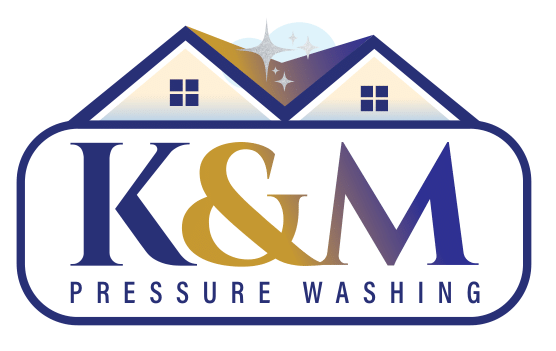 Pressure washing may sound like a complicated term, but it’s actually a simple yet powerful way to clean and maintain various surfaces. Whether it’s your home’s exterior, your driveway, or even your trusty garden furniture, pressure washing can breathe new life into them.
Pressure washing may sound like a complicated term, but it’s actually a simple yet powerful way to clean and maintain various surfaces. Whether it’s your home’s exterior, your driveway, or even your trusty garden furniture, pressure washing can breathe new life into them.
In this comprehensive guide, we’ll break down pressure washing into easy-to-understand chunks so you can learn how it works and how to use it effectively.
The Basics of Pressure Washing
Let’s start with the basics. Pressure washing in Myrtle Beach is all about using the force of water to get rid of dirt and grime that regular cleaning methods can’t handle. It’s like giving your surfaces a high-powered shower to wash away the gunk. But how does it work? The magic happens with a machine called a pressure washer.
Understanding Pressure Washers
A pressure washer is the superhero in this cleaning tale. It takes regular tap water and transforms it into a high-pressure stream. Think of it as your garden hose on steroids, ready to tackle tough cleaning jobs. Pressure washers come in two types. These are gas and electric powered machines.
Electric-powered pressure washers are like the friendly sidekicks. They’re perfect for smaller tasks, like washing your car or patio furniture. They’re lighter, quieter, and need less maintenance. On the other hand, gas-powered pressure washers are the muscle-bound heroes, ideal for larger tasks like cleaning driveways or the whole house exterior.
Inside the Pressure Washer
A pressure washer isn’t just a water-shooting machine; it’s got some vital parts:
- Water Inlet: This connects the pressure washer to your water source.
- Motor or Engine: It powers the pump.
- Pump: The heart of the pressure washer, it pressurizes the water.
- High-pressure Hose: This carries the pressurized water.
- Spray Wand and Nozzles: These determine the angle and intensity of the water spray.
 How Does It Work?
How Does It Work?
When you turn on a pressure washer, it takes in water from your hose, increases its pressure (sometimes up to 50 times normal pressure), and shoots it out at high speed. It’s like a water jetpack for cleaning! The pump plays a crucial role here by compressing the water and giving it the oomph needed to blast away dirt and grime.
The Science Behind Pressure Washing
Two important things to know are PSI (Pounds per Square Inch) and GPM (Gallons Per Minute). PSI measures the pressure applied, while GPM measures the water flow. High PSI helps with stubborn stains, while high GPM means faster cleaning.
Different Uses of Pressure Washing
In your world, pressure washing can save the day in various ways:
- At Home: Cleaning exteriors, driveways, sidewalks, patios, decks, and fences.
- For Your Car: Keeping your car clean and sparkly.
- On the Farm: Sprucing up farming equipment.
- In Business: Cleaning buildings, machinery, parking lots, and more.
Safety First!
Operating a pressure washer requires some safety precautions:
- Wear safety goggles, gloves, pants, and sturdy shoes.
- Never aim the pressure washer at people, animals, or plants.
- Be on a stable surface to avoid slips and falls.
Professional vs. DIY Pressure Washing
Choosing between professional and DIY pressure washing depends on the task’s scale and complexity. Smaller tasks are perfect for DIY, while larger ones might need a pro. Pros have the know-how and gear, but DIY can save you money.
The Impact of Pressure Washing
Pressure washing can make surfaces look like new, removing dirt, grime, mold, and more. However, it’s essential to use it right, as too much pressure can damage some surfaces.
Regular Pressure Washing Pays Off
Investing in regular cleaning can keep your property looking sharp and protect it from damage. Plus, it can boost your property’s curb appeal, potentially increasing its value if you ever decide to sell.
 Making the Right Choice
Making the Right Choice
Whether you go pro or DIY depends on your needs, budget, and time. But always remember, knowledge is power!
Ready to Start Pressure Washing?
Now that you’re armed with knowledge, it’s time to put it to good use. Whether you choose to do it yourself or call in the pros like K&M Pressure Washing LLC, pressure washing can make your surfaces shine and extend their lifespan. So go ahead, make the right choice for your cleaning needs!
Do you have more questions about pressure washing? Check out our FAQs below for answers to common queries!
Frequently Asked Questions
How often should I pressure wash my house?
It depends on your local climate and the type of exterior material. In most cases, once or twice a year is a good rule of thumb.
Can pressure washing damage my property?
If done incorrectly, it can cause damage. Start with low pressure and increase as needed. Keep the nozzle moving to avoid focusing on one spot for too long.
Can I use any cleaning solution in my pressure washer?
No, only use cleaners designed for pressure washers. Others may damage the machine or the surface you’re cleaning.
Is it safe to pressure wash windows?
Be cautious when pressure washing windows. High pressure can break the glass. Use lower pressure and stand farther away when washing windows for safety.
Can I pressure wash in any weather?
It can be done in most weather conditions, except during freezing temperatures, which can damage the machine. Avoid high winds, as they can make it hard to control the water direction.
Call K&M Pressure Washing LLC now. We’ll take care of your pressure washing needs. Our experts are always ready to assist you.
Like our Facebook page for more great info about pressure washing services.

 How Does It Work?
How Does It Work?